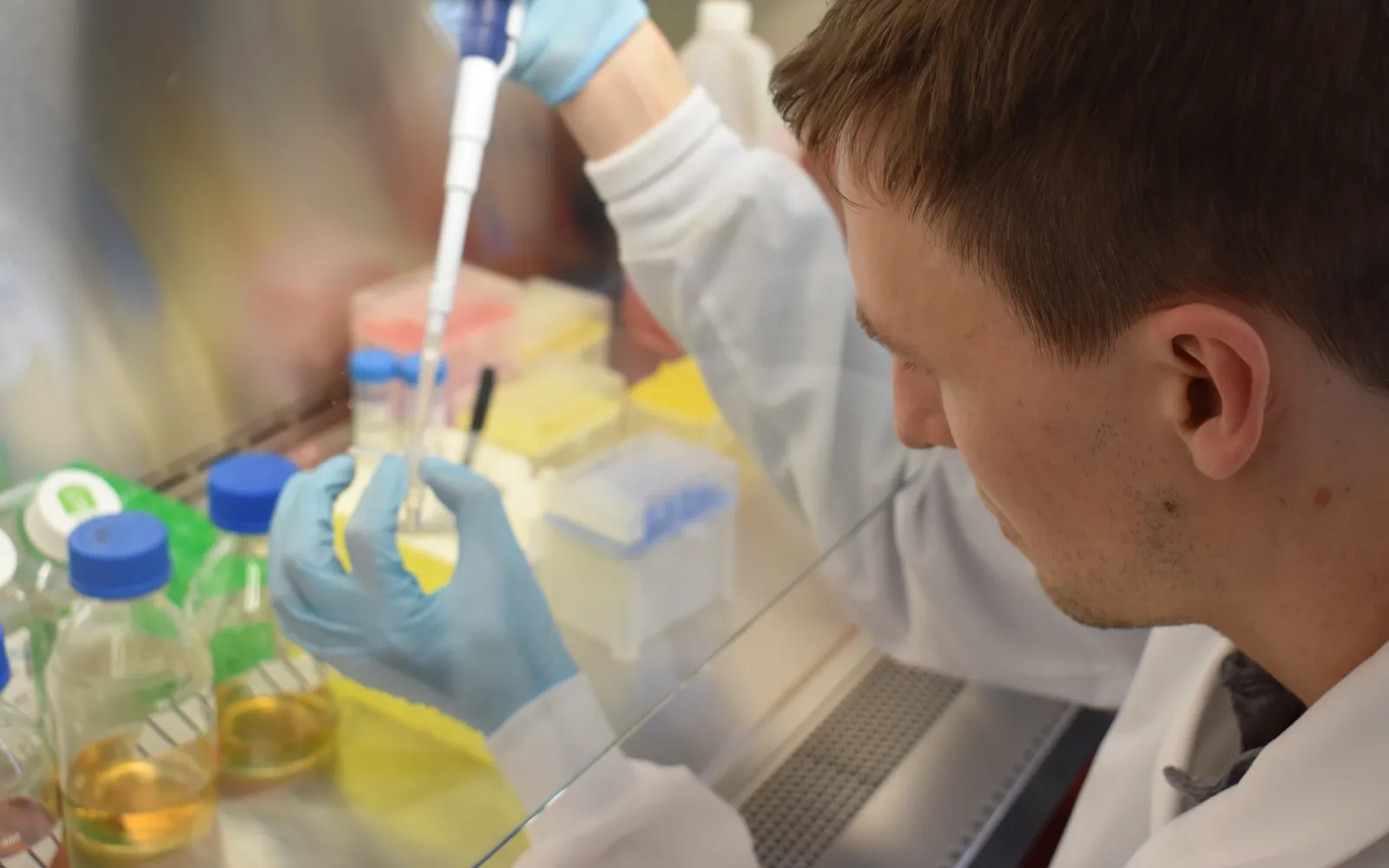

Kanvas Biosciences
Mapping the microbiome to improve human health
A class of cancer immunotherapies called immune checkpoint inhibitors (ICIs) can seem almost miraculous for very sick patients. The drugs unleash the body’s own T cells to eliminate cancer cells, and when they work, they really work, melting away solid tumors, leading to long-term remission.
Unfortunately, only 10 to 20 percent of cancer patients respond to ICIs like Keytruda ($25 billion in sales in 2023) and Opdivo ($9 billion in sales in the same year) — and researchers don’t understand what causes non-response in the other 80 to 90 percent. But scientists do know a strange and tantalizing fact: the mix of bacteria in a patient’s gut microbiome has something to do with it, because a stool transplant from a donor patient who has recovered can convert a non-responder into a responder.
Kanvas Biosciences, which just raised an additional $12.5 million in a Seed financing co-led by DCVC and Lions Capital, is the only company in the world with the ability to see what’s going on at the gut-wall boundary. (See great Forbes coverage here.) The company’s state-of-the-art spatial biology platform, which allows it to map gene expression and cellular function across all kingdoms of life, happens to be ideally positioned to illuminate host-microbiome interactions at a molecular level. Kanvas is now using that ability to determine which bacterial strains are most active in the guts of stool transplant donors and to devise synergistic drugs that, complementing ICIs, will raise immunotherapy response rates and save lives. That’s why DCVC has backed Kanvas since its early days, in 2021.
Kanvas’ first two drug candidates, KAN-001 and KAN-003, are precision microbiome therapeutics or PMTs, a mix of dozens of proprietary bacterial strains. The company’s high-resolution, highly multiplexed mapping platform can determine which bacterial strains are present in the gut from their RNA transcriptomes and identify strains that drive beneficial immune reactions in the gut’s epithelial cells. Kanvas selects strains from superdonors, individuals whose stool elicited positive responses in cancer patients through transplants, and then manufactures the strains as drugs. Now Kanvas is preparing to apply to the FDA for permission to begin Phase I clinical trials of KAN-001.
To understand how microbiomes makes ICI non-responders into responders, Kanvas plans to study stool samples from patients who did and did not respond to immunotherapy, as well as tissues from mice that experienced a strong response to KAN-001. It will add all that data into its database and use AI models to generate new insights. Learning more about the specific mechanisms of action will help clinicians figure out which patients are most likely to benefit from Kanvas’ drugs — and would reveal the true size of the population that might be helped by ICIs.
If Kanvas’ drugs can unlock the potential of ICIs, it could be a leap ahead in the treatment of many types of deadly cancers, from lung cancer to melanoma to triple-negative breast cancer. Doctors would be more willing to prescribe ICIs to more patients. More patients would respond positively to ICIs. And none of it could be accomplished without Kanvas’ unique spatial understanding of host-microbiome interactions.
The new $12.5 million brings Kanvas’ total Seed funding to $29.5 million, which the company will use to advance KAN-001 and KAN-003, with KAN-0001 expected to progress to an Investigational New Drug (IND) filing in 2025. Kanvas will also develop the company’s spatial biology platform as a diagnostic and drug discovery platform for a wider variety of diseases. The microbiome is the last uncharted group of cells in the human body, implicated in human health and disease in ways we scarcely understand today. Kanvas’ technology will end that dark age, making the microbiome into a druggable organ, like any other.




